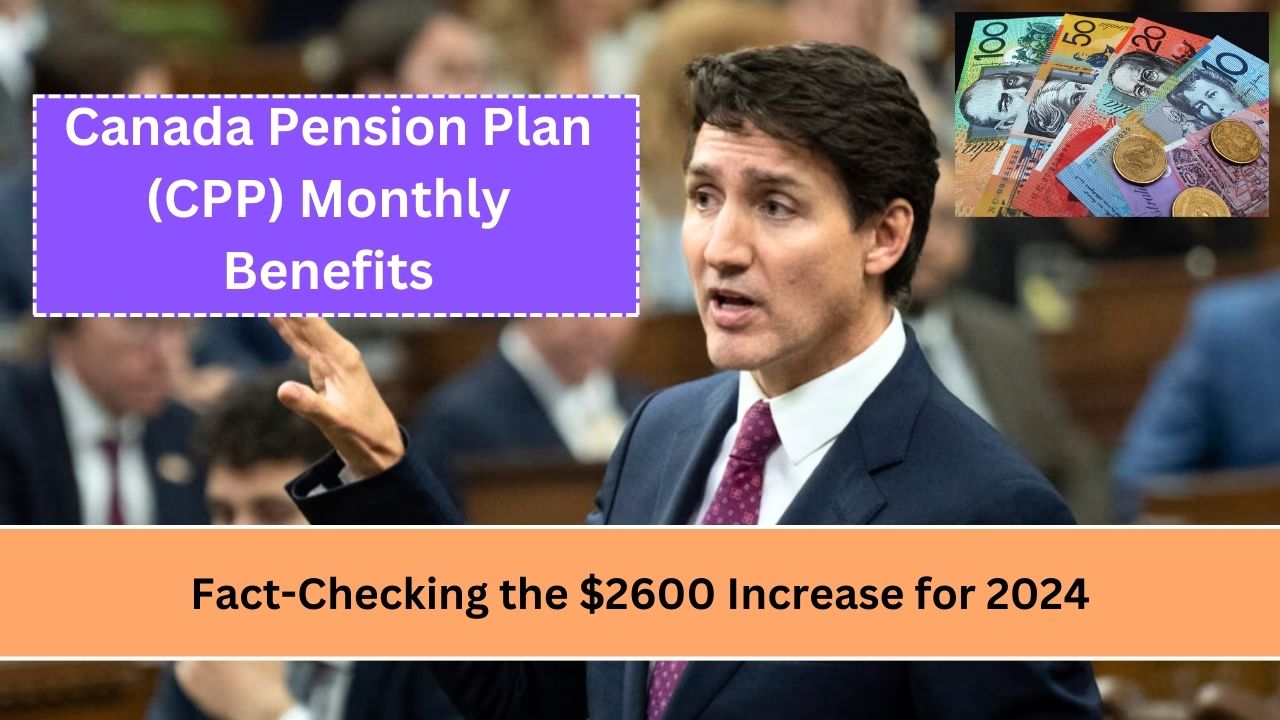The Canada Pension Plan (CPP) is a vital source of income for retired Canadians, providing financial security in their post-working years. As rumors swirl about a potential increase in CPP benefits to $2600 per month in 2024, let’s break down the facts, eligibility, payment schedule, and whether this claim holds weight.
What Is the CPP and Its Purpose?
The CPP is Canada’s public pension program, funded by contributions from employers, employees, and self-employed individuals. It aims to replace a portion of earnings for Canadians upon retirement, providing a stable income to support their living costs. Dependents, such as spouses and children of retirees, may also be eligible for benefits.
Is the CPP Monthly Benefit Increasing to $2600?
While the CPP undergoes periodic adjustments to account for inflation, the idea of a universal increase to $2600 per month for all recipients is not confirmed.
- Average Payment: The current average monthly CPP payout is $1364.60.
- Maximum Payment: Only high-income earners who made maximum contributions during their working years may qualify for payouts approaching $2600.
- Inflation Response: The Government’s periodic adjustments aim to address inflation and rising living costs. However, a blanket increase to $2600 is not in place.
Key Takeaway: The $2600 monthly benefit is hypothetical and would apply only to those with maximum contributions, not the majority of CPP recipients.
Why the Speculation About a $2600 CPP Payment?
Canada has faced significant inflationary pressures, with rising costs for essentials such as housing, healthcare, and food, disproportionately affecting seniors. The government’s cost-of-living adjustments to CPP aim to mitigate these challenges, but any increase is tied to an individual’s contributions and retirement age.
Eligibility for CPP in 2024
The eligibility criteria for CPP benefits remain unchanged:
- Age Requirement:
- Retirees aged 60 or older can start receiving CPP benefits.
- Delaying benefits until 65 or 70 results in higher monthly payouts due to delayed retirement credits.
- Contribution History:
- The amount received depends on total contributions made throughout a person’s working life.
- High earners with consistent contributions are more likely to receive higher payouts.
- Dependents:
- Dependents of retirees, such as spouses and children, may also qualify for benefits.
CPP Payment Schedule for 2024
CPP payments are issued monthly, following a consistent schedule across Canada. Here are the confirmed 2024 payment dates:
| Month | Payment Day | Payment Date 2024 |
|---|---|---|
| January | Monday | January 29 |
| February | Tuesday | February 27 |
| March | Tuesday | March 26 |
| April | Friday | April 26 |
| May | Wednesday | May 29 |
| June | Wednesday | June 26 |
| July | Monday | July 29 |
| August | Wednesday | August 28 |
| September | Wednesday | September 25 |
| October | Tuesday | October 29 |
| November | Wednesday | November 27 |
| December | Friday | December 20 |
Note: Retirees should ensure their CPP account details are up to date to avoid delays in receiving payments.
Fact-Check: Is the $2600 CPP Increase Reliable?
The claim of a universal increase to $2600 for all CPP recipients lacks confirmation.
- Current Reality: The average CPP payment of $1364.60 is far below the rumored $2600.
- Who May Qualify?: Only those with maximum contributions and delayed retirement credits might receive $2600 or more.
- Government Updates: No official announcements from Service Canada or the CRA confirm a universal $2600 increase.
For accurate estimates, retirees are encouraged to use the CPP Calculator available on the official Canada.ca website.
Frequently Asked Questions (FAQ)
- Is CPP really raised to $2600 per month?
No, the $2600 figure applies only to those with maximum contributions. - When will the $2600 increase take effect?
There is no confirmed timeline or official announcement for this increase. - Does delaying CPP benefits result in higher payments?
Yes, delaying CPP past age 65 increases monthly benefits due to delayed retirement credits. - Is CPP income taxable?
Yes, CPP payments, including potential increases, are subject to income tax.
Conclusion
The speculation around a $2600 monthly CPP benefit reflects Canadians’ concerns about rising living costs. While adjustments to CPP benefits address inflation, a universal $2600 payment remains unlikely. Retirees are encouraged to verify their CPP eligibility, payment amounts, and updates through Service Canada to make informed financial plans.
I Work as a Content Writer and I like Writing Articles




